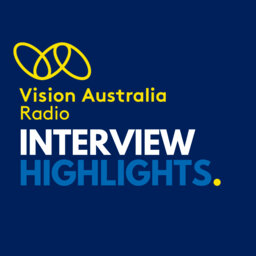Interview Highlight: Kelly Schulz - Founder and Director of Knowable Me
Peter Greco chats with Kelly Schulz Founder and Director of Knowable Me, who is running a research project in regards to election accessibility for people with disabilities. You may be able to earn a small fee for your participation.
More info: Knowable Me
Or call: 0435 18 55 77
 Interview Highlights from Vision Australia Radio
Interview Highlights from Vision Australia Radio


